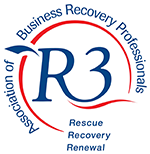Action this day – make this your New Year resolution
January 4th, 2018
 The quote that ended 2017 should become the watchword at the beginning of 2018 for accountants who have clients that are struggling to keep their businesses afloat. Indeed, my suggestion is that accountants should write this quote at the top of the page in their diary on their first day back at work.
The quote that ended 2017 should become the watchword at the beginning of 2018 for accountants who have clients that are struggling to keep their businesses afloat. Indeed, my suggestion is that accountants should write this quote at the top of the page in their diary on their first day back at work.
“Early intervention is key to business turnaround and recovery, and any business concerned about their long-term success should seek advice from an insolvency specialist.”
This advice comes from a study from London insolvency practice Hudson Weir, showing that 60% of UK cities with the most improved business survival rates were in the North of England.
Locally, of course, we have seen the effect of not taking those early steps: Burslem unveiled as the town with the most vacant shops in the UK; and in November a BBC report on the growing number of people aged between 18 and 24 who were going insolvent revealed that Cannock Chase and Stoke-on-Trent were in the top six local authority areas with the highest insolvency rate among those young people.
From my own perspective, the relatively small 0.25% increase in the Bank of England interest rate to 0.5% in November 2017 has already had an effect in the number of enquiries I have been receiving of late from those who are taking those “early steps” which have noticeably increased. We have a generation of consumers and business people who have lived the majority of their lives to date with interest rates at a marginal level and they have never had to cope with anything like the almost 15% rate we saw in 1989.
But some cities have been doing well and the study of business survival rates from 2010 to 2015 shows Belfast as the most improved. Blackpool came in second with Mansfield, Sunderland and Worthing making up the study’s top five most improved locations. Overall, the study revealed that business survival rates across the UK had improved 3% on average.
Despite the overall improvement, some of the UK’s largest business hubs such as London and Edinburgh showed surprising results, with rates of business closures actually rising in these cities.
Rapidly increasing business rates, combined with other increasing costs related to renting commercial property, are thought to have contributed to the increase in business closure rates in these major cities, with their communities of smaller businesses and startups the most affected.
The UK’s five worst towns and cities in terms of the increasing rates at which businesses closed were Northampton (34%), Aberdeen (34%), Plymouth (20%), Luton (18%) and Oxford (17%).
Director at Hudson Weir, Hasib Howlader, went on to say that more needed to be done to protect businesses, particularly in parts of the UK performing poorly economically. He added: “It is clear that there are areas in the UK where businesses continue to struggle due to varying factors such as the weak pound, increased price of imports and increasing overheads.”
“Early intervention is key to business turnaround and recovery, and any business concerned about their long-term success should seek advice from an insolvency specialist.”
Good advice indeed!
I can only urge my accountancy colleagues who have struggling businesses on their books to make ‘Action this day’ their New Year resolution and contact me as soon as possible.


